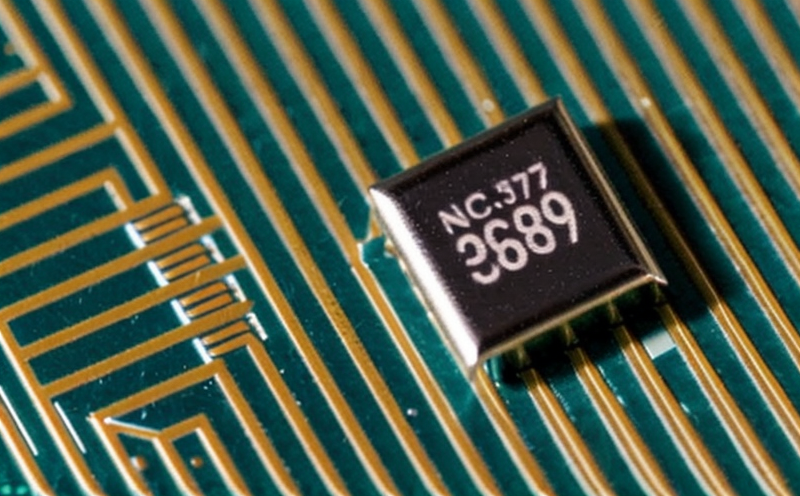ASTM F1838 Semiconductor Stress Reliability Testing
The ASTM F1838-14 standard specifies the requirements and procedures for testing semiconductor devices to evaluate their stress-induced reliability. This type of testing is crucial in ensuring that electronic components, particularly microchips, can withstand various environmental stresses throughout their lifecycle without failure.
ASTM F1838 focuses on three primary stress factors: temperature cycling, humidity conditioning, and thermal shock. These tests are designed to simulate real-world conditions that semiconductor devices may encounter during manufacturing, shipping, or operational use. By subjecting the devices to these stresses, engineers can identify potential weaknesses in design, material selection, or manufacturing processes.
The testing process begins with selecting appropriate samples of the semiconductor device under test (SUT). These samples are then subjected to a series of environmental chambers that control temperature and humidity levels. The SUT is exposed to rapid changes between high and low temperatures (temperature cycling), prolonged exposure to humid environments, and sudden thermal shocks.
During testing, the performance and integrity of the device are continuously monitored using non-destructive measurement techniques such as resistance measurements, capacitance measurements, leakage current detection, and visual inspections. These tests provide crucial data that helps in understanding how well the device performs under stress conditions.
The results from ASTM F1838 testing can be used by quality managers to ensure compliance with industry standards and regulatory requirements. Compliance officers can use this information to verify that suppliers are meeting contractual obligations regarding product reliability. R&D engineers rely on these test outcomes to refine designs, optimize materials, and improve manufacturing processes.
ASTM F1838 is widely recognized as a best practice for semiconductor manufacturers looking to enhance the robustness of their products. By incorporating this testing into their quality assurance programs, companies can significantly reduce warranty costs associated with early failures and improve overall customer satisfaction.
| Applied Standards |
|---|
| - ASTM F1838-14: Standard Practice for Stress Reliability Testing of Semiconductor Devices |
| - ISO 9650:2004: Environmental testing - General requirements and test methods |
Why It Matters
The importance of ASTM F1838 cannot be overstated, especially in today’s fast-paced technological landscape where reliability is paramount. Semiconductor devices are integral to a wide range of products from smartphones and computers to automotive electronics and industrial machinery. Ensuring these components can endure harsh environmental conditions not only extends their operational life but also enhances safety.
For quality managers, the ability to predict how semiconductor devices will perform under stress conditions allows for proactive rather than reactive approaches to product development. This translates into reduced warranty costs, improved brand reputation, and increased customer trust. Compliance officers benefit from having robust test data that supports regulatory compliance efforts.
R&D engineers can use ASTM F1838 results to make informed decisions about material choices, design optimizations, and process improvements. In the context of procurement, sourcing suppliers who adhere to such rigorous testing protocols ensures that only high-quality components enter the supply chain.
- Enhances product longevity
- Reduces warranty costs
- Improves brand reputation
- Promotes regulatory compliance
- Aids in material and process optimization
The reliability of semiconductor devices directly impacts the performance and safety of end-user products. By investing in ASTM F1838 testing, companies can ensure they are delivering reliable, high-performance components that meet or exceed customer expectations.
Applied Standards
| Standard Name | Description |
|---|---|
| ASTM F1838-14 | Standard Practice for Stress Reliability Testing of Semiconductor Devices |
| ISO 9650:2004 | Environmental testing - General requirements and test methods |
The ASTM F1838 standard is complemented by other international standards that provide additional guidelines on environmental testing. ISO 9650, for instance, sets out general requirements and methodologies for performing environmental tests, which helps in ensuring consistency across different laboratories.
Together, these standards form a robust framework for evaluating the reliability of semiconductor devices under various stress conditions. The integration of these standards into quality assurance programs ensures that companies are not only adhering to industry best practices but also staying ahead of regulatory requirements.





